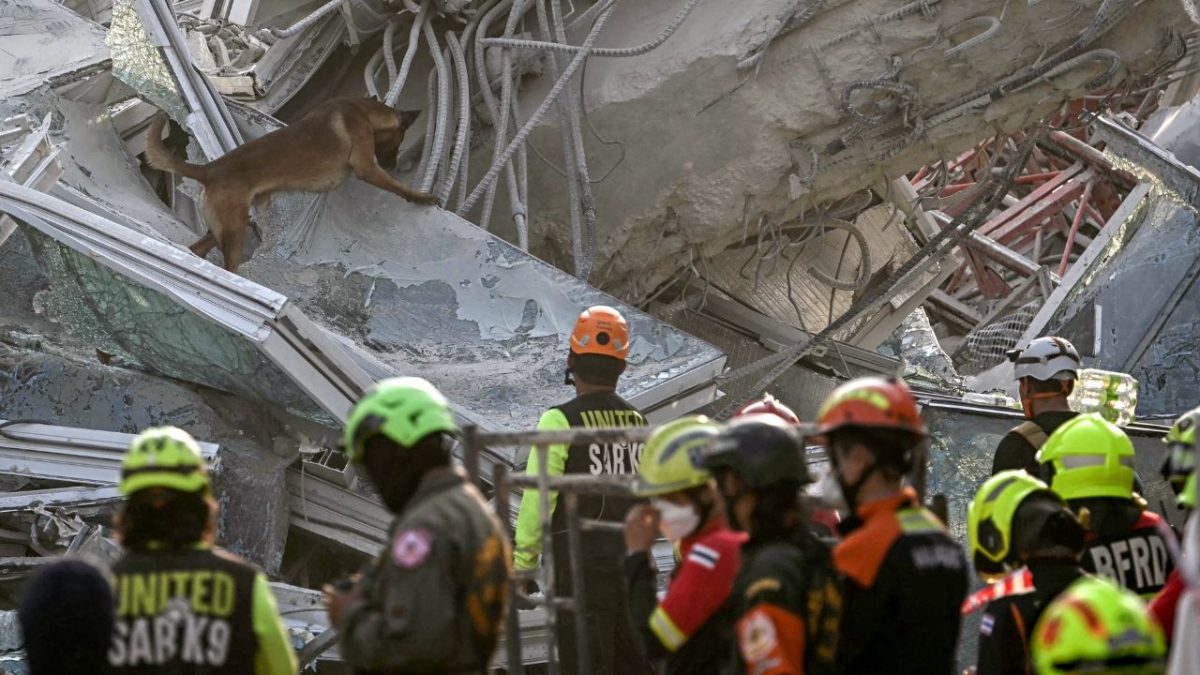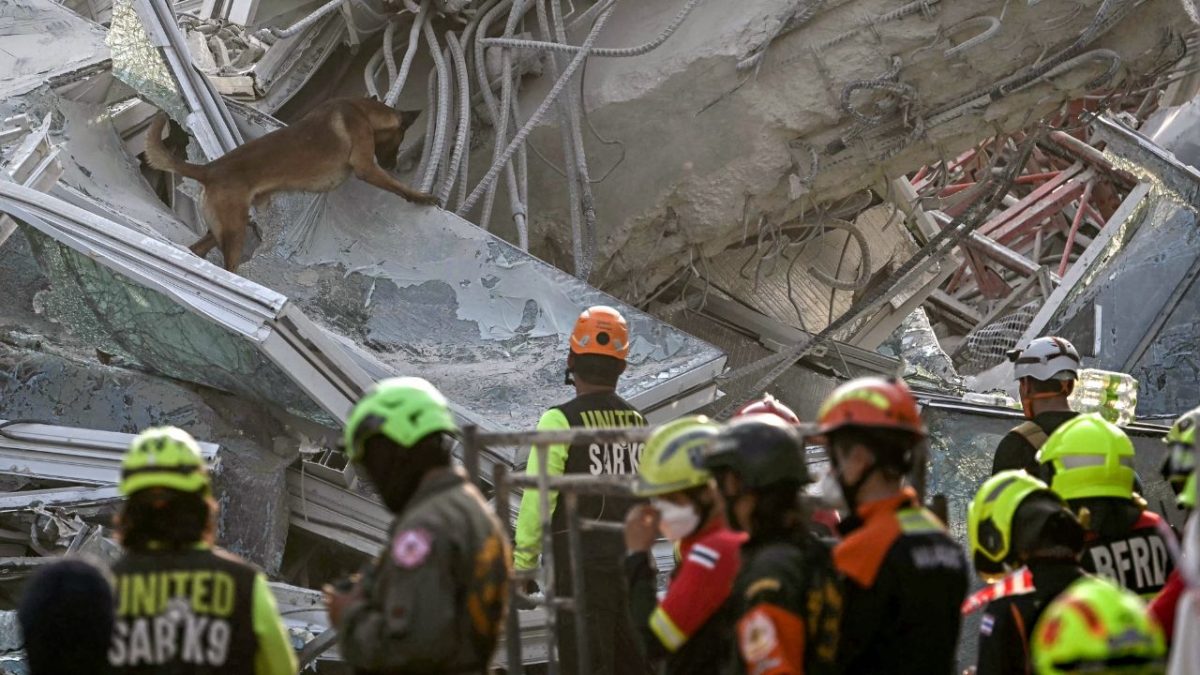A new ‘trend’ has gone viral on social media. People are using a new version of ChatGPT to transform images of themselves, their pets, films or memes in the distinct style of Studio Ghibli, the acclaimed Japanese animation studio behind Spirited Away.
While it all began in fun, the frenzy took a darker turn soon with governments and individuals using it for controversial posts. The trend has also raised copyright concerns and the debate over artificial intelligence (AI) mimicking the creative works of artists.
Let’s take a closer look.
What’s the trend?
OpenAI recently launched ChatGPT’s new AI image generator called 4o, an upgrade from its DALL-E 3 service.
Soon, the internet was flooded with Ghibli-style images as people used GPT-4o’s image generator to convert their personal photos or popular memes into the distinct style of Studio Ghibli founder Hayao Miyazaki.
Ghibli-style images of the chill Turkish pistol shooter Yusuf Dikec at the 2024 Paris Olympics, Elon Musk, US President Donald Trump, and movie scenes took over social media.
The Ghibli version of popular memes like the “Disaster Girl” of a 4-year-old looking into the camera with a slight smile as a house burns in the background was also shared.
ChatGPT maker OpenAI’s CEO Sam Altman joined the viral trend and changed his profile on X into a Ghibli-style portrait.
He joked that OpenAI’s servers were “melting” from the demand for Ghibli-style images.
While ChatGPT’s paid service, available with the new 4o tool, is generating AI images in the style of Studio Ghibli, its older DALL-E 3 image-generation tool that has free service refused the request, as per a Business Insider report.
Citing copyright laws, ChatGPT replied: “I can’t generate images in the style of Studio Ghibli because it is a copyrighted animation studio, and its artistic style is protected.”
Notably, not all users are on board with the “Ghiblification” of images by OpenAI’s new tool. Critics have drawn attention to the painstaking details in Ghibli’s works and the complex animation drawn by hand.
This four second crowd scene from Studio Ghibli’s The Wind Rises (2013) took animator Eiji Yamamori 1 year and 3 months to complete pic.twitter.com/RyOngP2o60
— Anime Aesthetics (@anime_twits) March 27, 2025
The White House sharing a ‘Ghiblified’ image of a weeping immigrant being arrested and deported was also severely criticised.
https://t.co/PVdINmsHXs pic.twitter.com/Bw5YUCI2xL
— The White House (@WhiteHouse) March 27, 2025
Has OpenAI violated copyright?
Legal experts say what OpenAI has done falls in a grey area.
Evan Brown, an intellectual property lawyer at the US-based law firm Neal & McDevitt, told TechCrunch that style is not explicitly protected by copyright laws. This means that OpenAI does not technically appear to be violating laws by generating images that look like Studio Ghibli movies.
However, Brown pointed out that it is likely OpenAI trained its model on the creative works of the Japanese studio. “I think this raises the same question that we’ve been asking ourselves for a couple years now. What are the copyright infringement implications of going out, crawling the web, and copying into these databases?”
Many courts are still considering whether AI developers are liable for using copyrighted materials to train their models.
In a technical paper posted Tuesday, OpenAI said its new 4o tool would be taking a “conservative approach” in the way it imitates the aesthetics of individual artists, as per Associated Press (AP).
“We added a refusal which triggers when a user attempts to generate an image in the style of a living artist,” it said.
But it said in a statement that it “permits broader studio styles — which people have used to generate and share some truly delightful and inspired original fan creations,” reported AP.
Artist Karla Ortiz, who is suing other AI image generators for copyright infringement, has called the latest trend “another clear example of how companies like OpenAI just do not care about the work of artists and the livelihoods of artists.”
“That’s using Ghibli’s branding, their name, their work, their reputation, to promote (OpenAI) products,” Ortiz told AP. “It’s an insult. It’s exploitation.”
To see something so brilliant, as wonderful as Miyazaki’s work be butchered to generate something so foul.
— Karla Ortiz (@kortizart) March 27, 2025
God I hope Studio Ghibli sues the hell out of Open Ai for this. pic.twitter.com/VRUB5IB6F1
Hitting out at the US government for posting a ‘Ghiblified’ image of the weeping migrant, Ortiz wrote on social media, “To see something so brilliant, as wonderful as Miyazaki’s work be butchered to generate something so foul,” adding that she hoped Studio Ghibli sues “the hell out of” OpenAI for this.
Studio Ghibli in Japan has not addressed the issue yet.
What does Ghibli founder think about AI?
Some users upset with the new trend of AI creating images like Ghibli’s works posted old videos of Miyazaki commenting on the technology.
In 2016, when the Ghibli founder was shown an AI demo, he said he was “utterly disgusted” by it.
The person who was showing the demo said that AI could “present us grotesque movements that we humans can’t imagine”, adding it could be used to depict zombie movements.
This led to Miyazaki telling a story.
“Every morning, not in recent days, I see my friend who has a disability,” Miyazaki said. “It’s so hard for him just to do a high five; his arm with stiff muscle can’t reach out to my hand. Now, thinking of him, I can’t watch this stuff and find it interesting. Whoever creates this stuff has no idea what pain is.”
The Ghibli founder asserted he would “never wish to incorporate this technology into my work at all.”
“I strongly feel that this is an insult to life itself,” he added.
With inputs from agencies


)
)
)
)
)
)
)
)
)



